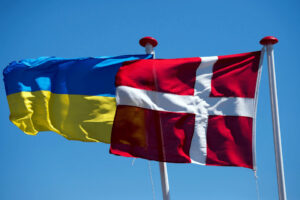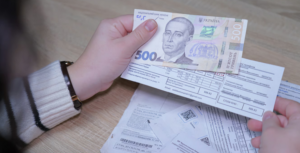
Danish Defense Minister Troels Lund Poulsen said that Ukrainian defense companies may soon start production in Denmark.
“The second thing I will mention today is what could be called the ‘Danish model 2.0’. I hope that in a few weeks we will invite the first Ukrainian defense company to start production here in Denmark, in a safe environment,” he said during a briefing with EU foreign policy chief Kaja Kallas on Friday.
Poulsen noted that he expects other Ukrainian defense companies to join the process later this year. “And I believe that this will also be a way to provide even more support to Ukraine,” he stressed.
The minister also said that he discussed this initiative during his visit to Kyiv on Sunday. “During this visit, I had the opportunity to talk to both President Zelensky and the new Minister of Defense Denys Shmyhal about the prospects of inviting Ukrainian defense companies to start production here in Denmark. And they fully support this idea,” he said.

A US appeals court on Friday ruled that most of the tariffs imposed by Donald Trump were illegal, undermining the use of these levies as a key tool of international economic policy, Reuters reports.
The court allowed the tariffs to remain in effect until October 14 so that the Trump administration could appeal to the US Supreme Court.
“The decision comes amid a legal battle over the independence of the Federal Reserve, which is also likely to reach the Supreme Court, creating an unprecedented legal confrontation this year over Trump’s economic policy,” the report said.
US President Donald Trump criticized the verdict, saying it was accepted: “ALL TARIFFS ARE STILL IN EFFECT! Today, the highly partisan Court of Appeals wrongly ruled that our tariffs should be canceled, but they know that the United States of America will ultimately prevail. If these tariffs ever disappear, it will be a complete disaster for the country. It will make us financially weak, and we must be strong… Now, with the help of the US Supreme Court, we will use them to benefit our nation and make America rich, strong, and powerful again!” Trump wrote on Truth Social.
According to the publication, in a 7-4 decision, the court considered the legality of the “reciprocal” tariffs imposed by Trump in April as part of the trade war, as well as separate tariffs against China, Canada, and Mexico imposed in February.
The court noted that the International Emergency Economic Powers Act (IEEPA), to which Trump referred, does not provide the president with the direct right to impose tariffs. “It is unlikely that Congress, in enacting the IEEPA, intended to depart from its previous practice and grant the president unlimited authority to impose tariffs,” the document states.

Indebtedness of the population of Ukraine on payment for housing and communal services in the second quarter of 2025 amounted to 106.645 billion UAH.
According to the State Statistics Service (Gosstat), in April-June 2025 Ukrainians paid a total of UAH 64.341 billion for housing and communal services, which is 25% more than the accrued amount of UAH 51.46 billion.
The arrears for the reporting period for heat and hot water supply amount to UAH 35.165 billion, natural gas supply and distribution – UAH 32.321 billion, electricity supply – UAH 17.066 billion, centralized water supply and drainage – UAH 10.155 billion, apartment building management – UAH 8.836 billion, household waste management – UAH 3.101 billion.
The highest level of arrears for housing services was recorded in Dnipropetrovsk (UAH 8.699 billion), Donetsk (UAH 4.308 billion), Poltava (UAH 3.303 billion), Kyiv (UAH 2.031 billion), Kharkiv (UAH 1.521 billion), Odessa (UAH 1.48 billion), Lviv (UAH 1.09 billion) regions and Kyiv (UAH 2.342 billion).
The data are given without taking into account the territories temporarily occupied by the Russian Federation and part of the territories where hostilities are (were) being (were) conducted.

Over seven months of 2025, Ukraine exported frozen vegetables worth USD 6.1 million, according to an analytical review of the State Service for Agrarian Policy and Investments. The export structure is dominated by such products as frozen carrots, beets, celery, lettuce, chicory and potatoes.
The growth of frozen vegetable exports can be partly explained by the rapid development of the berry sector in the agro-sector. After the rapid increase in raspberry production, many companies invested in freezing facilities. Using them to their full potential, they expanded their product range to include a variety of fruits and vegetables.
Despite strong growth, Ukraine is still a net importer of frozen vegetables – exports are inferior to imports. This indicates the accumulated potential for further growth and diversification of the assortment in the future.
Key markets for Ukrainian frozen vegetables include Germany, Israel, Belgium, Italy, Poland, France, France, Italy and Romania.
Growing exports of frozen vegetables are a signal of industry adaptation and efficient use of resources. Particularly impressive is the diversification into frozen products, a move that allows Ukrainian producers to enter new markets and sustainably consolidate in existing ones. Nevertheless, the persistent deficit in the balance of exports and imports requires attention to quality, product mix and brand development. Increased support for local processors, modernization of freezing and logistics chains, and promotion in foreign markets are key factors for further growth.

The French group of companies Qair, specializing in the construction of RES facilities, will build in Moldova the country’s largest wind power plant (WPP) with a capacity of 27.5 MW, the company said. Qair has won the relevant tender in Moldova.
The report also notes that in Romania, the group has been awarded a second 50MW contract for price difference (CfD) for its 100MW Cobadin wind farm under construction in the Constanta region, and is also constructing an 8MW wind farm in Bordei-Verde, a project supported by the EU. With the wind power project in Moldova, the total capacity of the company’s wind power plants under construction will amount to 135.5 MW.
“The signing of the agreement in Moldova reflects the growing complementarity of the Moldovan and Romanian markets, which are now coordinated by a single operator. This allows Qair to optimize asset management and maximize the return on its investment in the region,” the statement said.
Qair also has 1.7 GW of wind, solar and energy storage capacity in operation or under construction in the UK, Poland, Germany and France. The group is developing a portfolio of projects totaling 34 GW in 20 countries in Europe, Latin America and Africa.
In June, Moldova’s Ministry of Energy identified 4 companies that will invest €200 million over three years to build wind and solar parks with a total capacity of 165 MW. A new round of tenders for the construction of RES with an estimated capacity of up to 173 MW is scheduled for October 2025.
The development of RES generation in Moldova will contribute to the realization of the authorities’ plans to ensure at least 30% of electricity consumption from renewable sources by 2030. In 2024, Moldova’s RES generation generated 691,000 MWh of electricity, representing 16.7% of annual consumption.

China will take measures to reduce steel output in 2025-2026, Reuters writes, citing an informed source and an official document from the ministries of industry, environment and others it has consulted. According to the document, the world’s largest steel producer will also severely limit new capacity.
“The steel industry has faced overcapacity and insufficient effective demand, resulting in a supply-demand imbalance affecting the quality and efficiency of development,” the document said.
The document does not set production reduction targets. However, it notes, such reduction will be achieved by closing obsolete and inefficient furnaces and supporting the development of advanced enterprises.
At the same time, it plans to increase the industry’s value-added by 4% per year, invest in new technologies and encourage the use of steel in housing and infrastructure construction.
Beijing will also strengthen measures to ensure stability in the cost and supply of raw materials, including iron ore and coking coal, and take steps to strengthen the management of steel exports, the document said. An informed source confirmed the authenticity of the document and said it was the latest version.